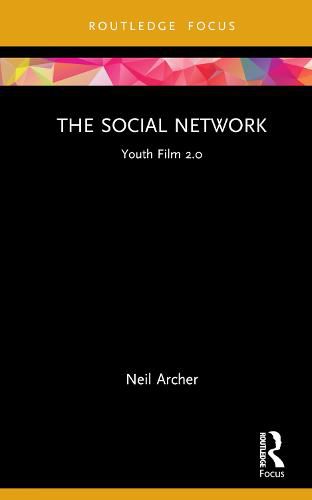Readings Newsletter
Become a Readings Member to make your shopping experience even easier.
Sign in or sign up for free!
You’re not far away from qualifying for FREE standard shipping within Australia
You’ve qualified for FREE standard shipping within Australia
The cart is loading…






This in-depth study of one of the twenty-first century’s most acclaimed films, The Social Network: Youth Film 2.0 considers the contribution of David Fincher and Aaron Sorkin’s film to the understanding of ‘youth’ in a contemporary, digital age.
The book starts by situating The Social Network within the contexts of ‘youth film’, arguing that it challenges and reshapes the boundaries of this genre by rethinking the notion of ‘youth’ itself in the present century. It goes on to consider in detail the aesthetics at work in the film, arguing for its critical and reflexive use of an ‘accelerated’ audio-visual style, in order to capture both the new visual regimes of the personal computer era, and the ethical and intellectual ambiguities of Facebook itself as a creation. Finally, it locates the film within the broader visual styles and fashion codes of a late twentieth- and early twenty-first-century consumer culture that incorporates and commodifies rebellion and dissent: qualities that underpinned Facebook’s emerging, paradoxical identity as at once the epitome of ‘hacker’ culture and also a multi-billion-dollar global company.
Reframing the meaning of youth cinema, this volume in the Cinema and Youth Culture series is ideal for students, researchers and scholars of cinema studies, youth culture and digital cultures.
$9.00 standard shipping within Australia
FREE standard shipping within Australia for orders over $100.00
Express & International shipping calculated at checkout
This in-depth study of one of the twenty-first century’s most acclaimed films, The Social Network: Youth Film 2.0 considers the contribution of David Fincher and Aaron Sorkin’s film to the understanding of ‘youth’ in a contemporary, digital age.
The book starts by situating The Social Network within the contexts of ‘youth film’, arguing that it challenges and reshapes the boundaries of this genre by rethinking the notion of ‘youth’ itself in the present century. It goes on to consider in detail the aesthetics at work in the film, arguing for its critical and reflexive use of an ‘accelerated’ audio-visual style, in order to capture both the new visual regimes of the personal computer era, and the ethical and intellectual ambiguities of Facebook itself as a creation. Finally, it locates the film within the broader visual styles and fashion codes of a late twentieth- and early twenty-first-century consumer culture that incorporates and commodifies rebellion and dissent: qualities that underpinned Facebook’s emerging, paradoxical identity as at once the epitome of ‘hacker’ culture and also a multi-billion-dollar global company.
Reframing the meaning of youth cinema, this volume in the Cinema and Youth Culture series is ideal for students, researchers and scholars of cinema studies, youth culture and digital cultures.